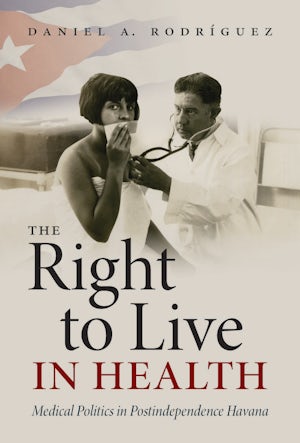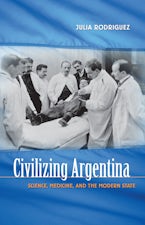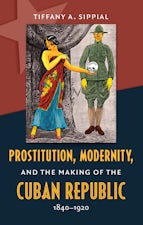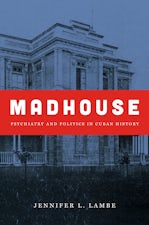The Right to Live in Health
Medical Politics in Postindependence Havana
By Daniel A. Rodríguez
288 pp., 6.125 x 9.25, 10 halftones, notes, bibl., index
-
Paperback ISBN: 978-1-4696-5973-2
Published: August 2020 -
E-book PDF ISBN: 979-8-8908-5999-0
Published: July 2020 -
Hardcover ISBN: 978-1-4696-5972-5
Published: August 2020 -
E-book EPUB ISBN: 978-1-4696-5974-9
Published: July 2020
Envisioning Cuba
Buy this Book
- Paperback $37.50
- Hardcover $99.00
- E-Book $26.99
For Professors:
Free E-Exam Copies
Awards & distinctions
Shortlisted, 2021 Juan E. Méndez Book Award for Human Rights in Latin America
Rodríguez describes how medicine and new public health projects infused republican Cuba’s statecraft, powerfully shaping the lives of Havana’s residents. He underscores how various stakeholders, including women and people of color, demanded robust government investment in quality medical care for all Cubans, a central national value that continues today. On a broader level, Rodríguez proposes that Latin America, at least as much as the United States and Europe, was an engine for the articulation of citizens’ rights, including the right to health care, in the twentieth century.
About the Author
Daniel A. Rodríguez is assistant professor of history at Brown University.
For more information about Daniel A. Rodríguez, visit
the
Author
Page.
Reviews
“Rodríguez deftly weaves multiple scales of analysis—from the microbiological to the ideological to the economic—into his narrative. . . . He is a skillful writer, crafting a story with crisp prose and vivid detail, without sacrificing sophisticated argumentation and empirical depth.”—NACLA Report on the Americas
“Extremely well-written. . . . A major contribution to the history of modern Cuba and to the history of medicine in Latin America. It will be essential to Latin American scholars and to health professionals, and Rodríguez’s lucid writing will make it accessible to undergraduate students.”—Social History of Medicine
“Important and wide-ranging. . . . Rodríguez has written an invaluable account of the history of medicine and public health in Cuba, an account that should become a point of reference for future studies in this growing and vibrant field.”—H-LatAm
“An insightful, controversial, and engaging read for seasoned scholars of Cuban health care.”—New West Indian Guide
“Daniel Rodríguez deploys an intersectional analysis, attending to race, class, disease, gender, and geography to capture how medical reforms were deployed to treat the fundamental political, economic, and social tensions fracturing early twentieth-century Cuba.”—Julia Rodriguez, University of New Hampshire




